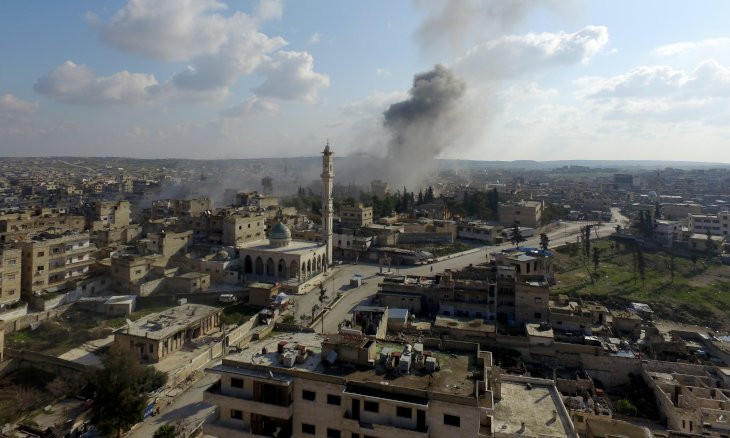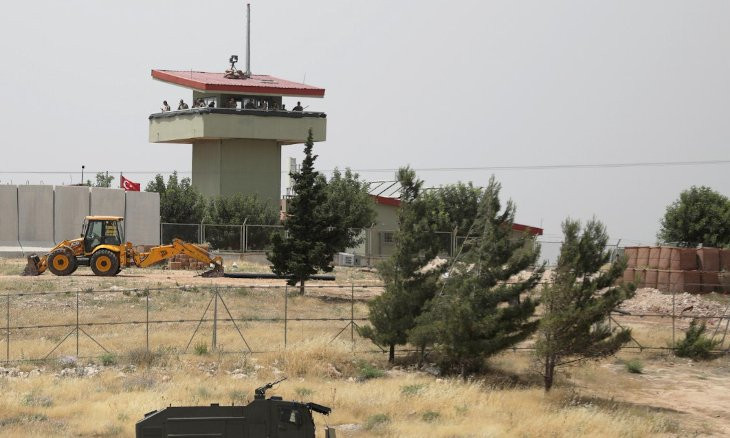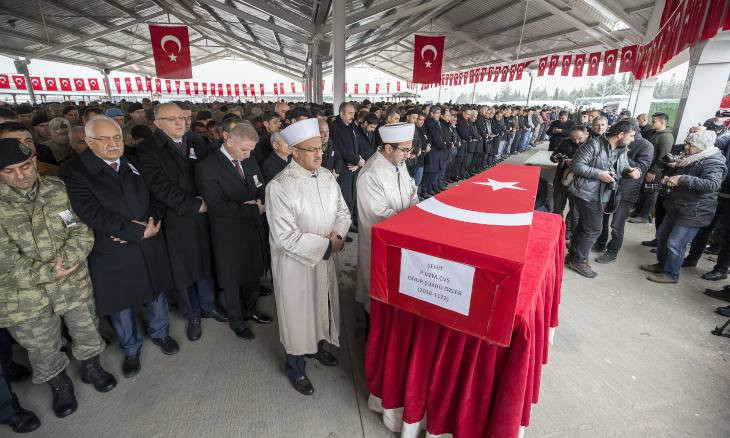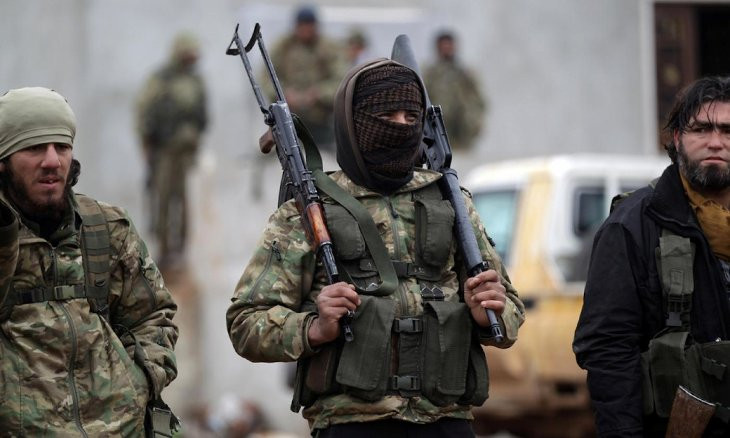Damascus accuses Turkey of engaging in colonialism on Syrian soil
Syrian Deputy Foreign Minister Faisal Mekdad accused Turkey of thwarting a solution to the conflict in his country, saying that "international law does not allow any country to attack another country, nor occupy it and carry out colonial practices against it, including the transfer of the local people, the raising of the Turkish flag and the opening of Turkish schools." He also said that armed groups in Idlib are in coordination with Turkey.
Duvar English
Syrian Deputy Foreign Minister Faisal Mekdad accused Turkey of thwarting a solution to the conflict in his country.
In comments published by the pro-government Al-Watan newspaper on Feb. 3, he accused Ankara of working against the Astana and Sochi agreements that were brokered to prevent an escalation in the civil war.
"We condemn any violation of the 'Adana Agreement.' The Turkish regime did not adhere to this agreement, in which they are not allowed to cross in this depth into the Syrian territories," Mekdad told the daily, as he referred to the 1998 Adana Agreement, which Ankara sees as a source of legitimacy for its Syria incursion.
 Turkey 'determined to stop Syrian gov't violations of Idlib ceasefire'
Turkey 'determined to stop Syrian gov't violations of Idlib ceasefire'"The international law does not allow any country to attack another country, nor occupy it and carry out colonial practices against it, including the transfer of the local people, the raising of the Turkish flag and the opening of Turkish schools," he said, noting that "this contradicts the declared goals of the Turkish regime."
Mekdad also said that all the armed groups in Syria's last remaining rebel stronghold Idlib are in coordination with Turkey.
Turkey to keep observation posts in Idlib
President Recep Tayyip Erdoğan, meanwhile, said on Feb. 4 that Turkey will keep its military observation posts in Idlib along with necessary fortifications "because they play a vital role."
The Turkish Armed Forces (TSK) have set up and maintained 12 observation posts within militant-held territories in the Idlib province.
Speaking a day after a Syrian attack that killed five soldiers and three civilian personnel in Idlib, Erdoğan said that the attack was a very clear violation of the Idlib agreement and "will have consequences" for Syrian President Bashar al-Assad.
 Turkey vows to retaliate 'in strongest way' if army posts in Idlib threatened
Turkey vows to retaliate 'in strongest way' if army posts in Idlib threatenedErdoğan also said that in wake of the attack, there is no need for a conflict or contradictions with Russia, adding that there are serious strategic initiatives taking place.
Speaking on a flight after his talks with the Ukrainian president Volodymyr Zelensky, Erdoğan said that Turkey and Russia will discuss the existing state of affairs "without anger," adding that he intends to call President Vladimir Putin.
Russia calls on Turkey to abide by Sochi agreement
Also on Feb. 4, Russian Foreign Minister Sergey Lavrov has called on Turkey to strictly abide by the Sochi agreement on Idlib.
In an interview to Rossiyskaya Gazeta, the Russian diplomat said that Ankara failed to deliver on a number of key obligations to ease the situation in the province.
 US voices solidarity with Turkey after Syrian shelling kills Turkish soldiers
US voices solidarity with Turkey after Syrian shelling kills Turkish soldiers"We are receiving information about the deployment of Turkish troops in the Idlib zone, about the beginning of their clashes with units of the Syrian army. Our military is monitoring this situation. According to our information, which has already been reported by the General Staff, the Turkish military advanced to certain sites inside the Idlib de-escalation zone, without warning us about these movements, and, therefore, we could not inform the Syrian army about this. The attacks were conducted [by the Syrian army] and the Turkish side has threatened to retaliate. This is all very sad," the Russian Foreign Minister said.
Lavrov added that hundreds of militants are moving from the Idlib de-escalation zone to Libya to participate in offensives.
 Extremists are moving to Libya from Syria's Idlib: Lavrov
Extremists are moving to Libya from Syria's Idlib: Lavrov
